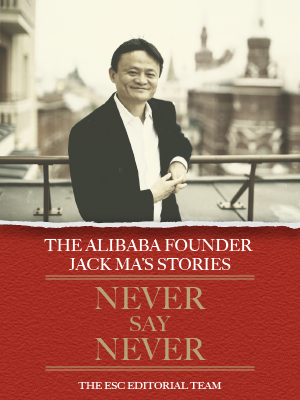Ecommercestrategychina.com uses cookies and other technologies to provide you a better browsing experience. You can get more information regarding the use of cookies, or decline it whenever by clicking Privacy Policy. By using this site or clicking “Okay”, you give us the consent to the use of cookies.
OKAY
Prevent Privacy Issues in the Social Network
People need to communicate every day, and social activity and communication is immortal.
Most of the existing social platforms implement platform centralisation and act as regulators and content distributors. They allow their users to passively receive a lot of false information. This feature determines that user information has to be stored in the platform database. Once a data breach occurs, users’ privacy is at risk of being exploited by hackers and criminals. A social platform based on blockchain technology stores all the data in the user's own "database", like a personal vault. Each user is a terminal that has all rights to his own data, which can not be filtered and collected by the other platform.
The emergence of blockchain also brings more possibilities for the diversification of social scenes.
One example is the virtual world based on blockchains. QunQun is a blockchain community platform based on open-source Ethereum where users can build their own communities. People can earn QunQun tokens to run their own communities or contribute content to other communities. People can use QunQun tokens to reward, consume, buy communities, and even advertise in them. As the community grows, the value of the community continues to increase. The more active the community is, the higher its selling price.
In addition, digital currency also attracts traditional social giants. They convert the coins and bonus points of the original platform into tokens as proof of circulation. Steemit is a social network with blockchain technology that uses Steemit's tokens to reward users who upload articles, images, and reviews, as well as those who provide and like the popular content on its platform. An important exploration of social networks in the future is the methodology of improving user loyalty through the digital rewards of users who provide high-quality content.
Utilising blockchain technology in the cannabis industry
In addition to the conventional ones mentioned above, some other emerging industries are also seeing the influence of blockchain technology. Cannabis is one of them. Although it considered to exist in a speculative market with foggy regulatory conditions and has not yet been widely accepted, it has received much attention from an influx of entrepreneurs and start-ups seeking to create value and strike the business big.
However, transparency, payment solutions, quality assurance and maintenance, and general regulatory uncertainty, which are major challenges of the cannabis industry, have plagued those passionate entrepreneurs. Blockchain, as an immutable distributed database, together with its application of cryptocurrency and smart contract, is expected to benefit the cannabis industry in the following aspects:
The blockchian’s feature of unchanging ledger can reduces deceptive practices, thus making it easy for financial organisatin and governments to audit cannabis companies and keep track of taxes owed. In this regard, it makes sense that blockchain is “one catalyst that could help legalize cannabis.”
Blockchian enables more efficiency supply chain management from when the product is farmed to when it gets to an authorized dispensary. On the other hand, a better overall customer experience is provided as customers can have a picture of the production.
Cryptocurrencies, due to their decentralization and irregulation, can serve as a secure, cashless, and convenient payment option for cannabis businesses.
This paragraph is extracted from Utilizing Blockchain Technology in the Cannabis Industry originally published at Made By Hemp. You could read more at https://madebyhemp.com/utilizing-blockchain-technology-in-the-cannabis-industry/.
Lead IoT (Internet of Things) into the advanced mode of the sharing economy
When we talk about China's Internet of Things, we have to mention Xiaomi. At present, the Internet of Things products used by ordinary consumers are mainly smart furniture.
As the largest Internet of Things (IoT) platform in China, Xiaomi released data at its first IOT Developer Conference (2017MIDC) on November 28, 2017: Daily active users of Xiaomi’s devices exceeded 10 million. There are more than 85 million users of networked devices. More than 5 million users use 2-5 Xiaomi devices and more than 3 million users own 5 Xiaomi devices.
Relying on a variety of products from Xiaomi eco-chains on Mi Store and a large number of third-party intelligent hardware accesses, Mi is already the most comprehensive smart furniture platform for ordinary consumers in China.
At the developer conference, Xiaomi and Baidu announced their joint efforts to build an "IoT+AI" ecosystem for hardware and software. Opening the platform attracts more developers so more devices can be added to enhance the user's life experience with smart furniture.
Xiaomi's IoT development program is mainly characterised by opening access to module hardware, Mi APP and new retail channels, controlling intelligent device connectivity, and sharing AI cloud/big data. The intelligent hardware team can use Xiaomi IoT’s standard technical documents and unified API interface to connect Mi APP through its own smart module hardware or the smart module hardware provided by XiaomiIoT. After accessing Mi APP, the third-party smart hardware will be connected and controlled across all products on the existing Xiaomi IoT platform.
This is the great revolution that blockchain may bring to organisations and manufacturing industries in the future - the advanced mode of the sharing economy.
Please Login to add comments.

$9.99 $19.98

$9.99 $19.98